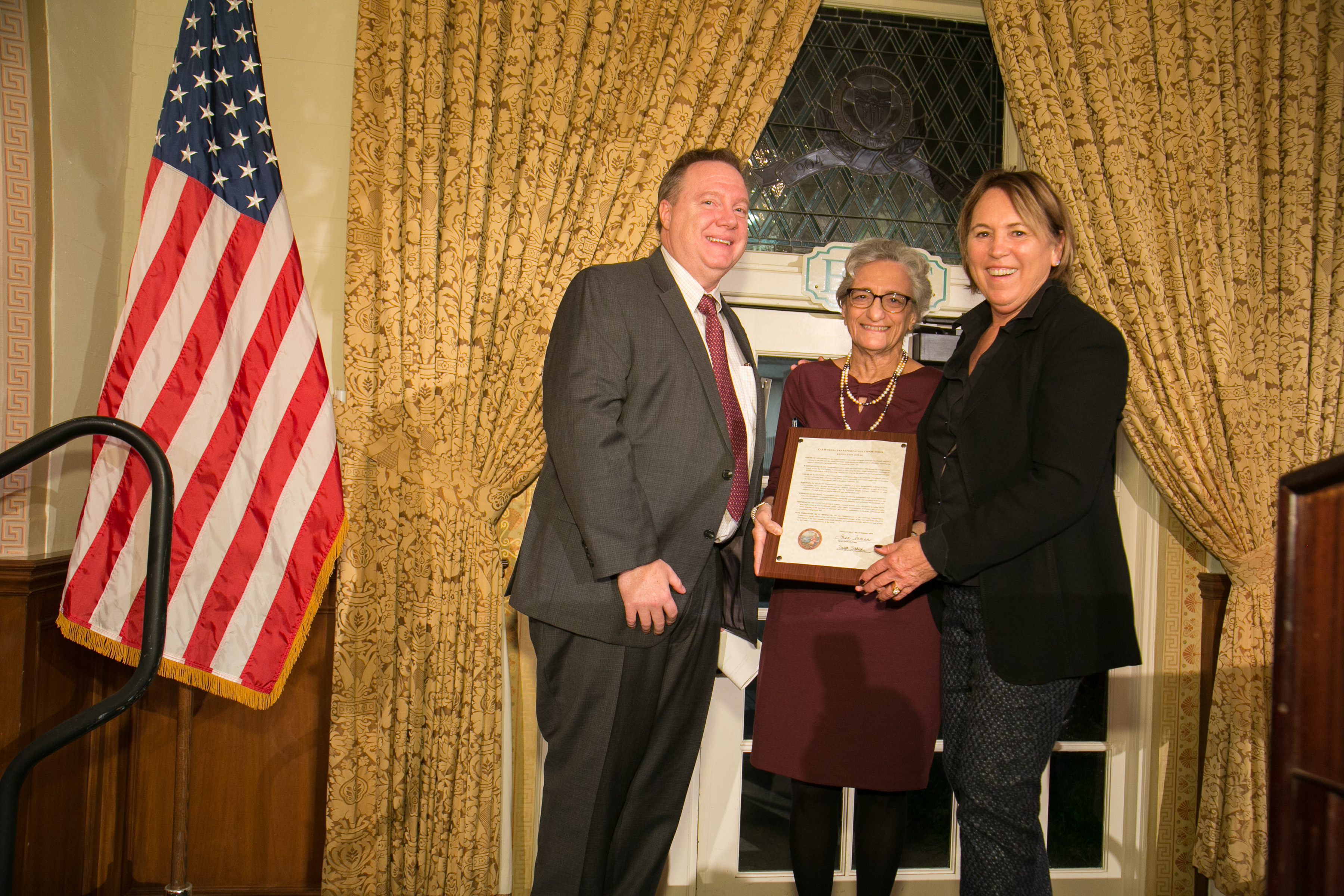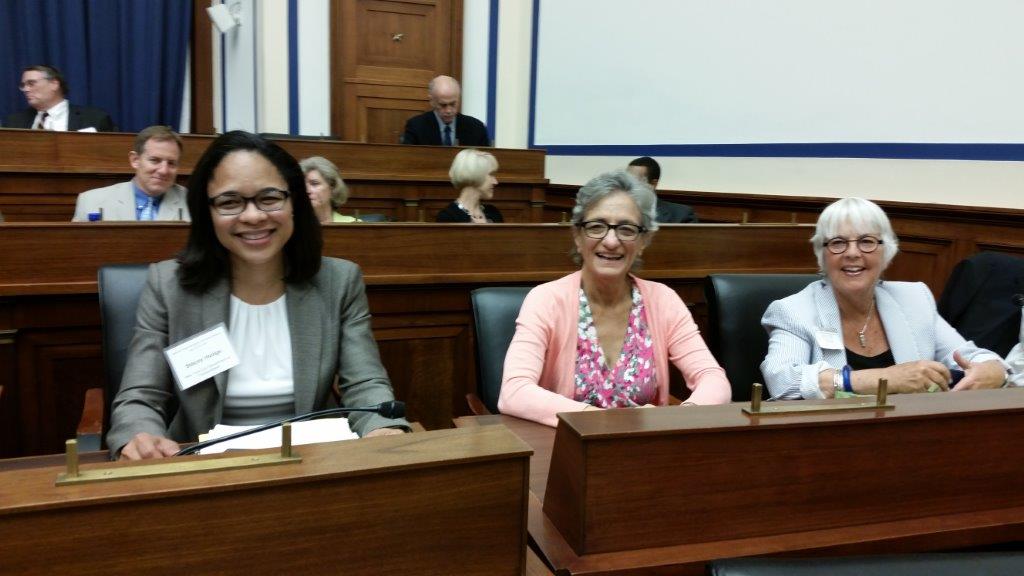News | METRANS' influence on policy and practice
Stop the VideoNews

METRANS Celebrates 20 Years of Research
This article is part of an ongoing series that describes research accomplishments and achievements of the METRANS Transportation Center in recognition of its 20th Anniversary. The author is Dr. Genevieve Giuliano, the Margaret and John Ferraro Chair in Effective Local Government in the Sol Price School of Public Policy, University of Southern California, and Director of the METRANS joint USC and California State University Long Beach Transportation Center. Her research areas include relationships between land use and transportation, transportation policy analysis, travel behavior, and information technology applications in transportation. Current research includes examination of relationships between land use and freight flows, spatial analysis of freight activity location, impacts of freight activities on local communities, and applications for transportation system analysis using archived real-time data.
METRANS’ influence on policy and practice
A frequently asked question to research centers is, “Yes, you have done all this wonderful research, but has it made a difference?” METRANS has made a difference in moving research to practice, as well as in influencing public policy. The impacts of METRANS research travel through many pathways. In moving research to practice, the conventional model is technology transfer: researchers develop a new tool or operational practice; benefits are demonstrated through field applications or training, which then leads to adoption. However, research is not only about tools or practices; research is about ideas, about developing new knowledge, and about considering transportation problems from new perspectives. Thus moving research to practice happens in many different ways.

Making a difference through our students
One of the most effective means of “technology transfer” is to train students in state of the art knowledge and skills and send them into the workplace. METRANS has graduated literally hundreds of students, many of whom are now leaders in their organizations. Our alumni include an Executive Director of a local transit agency, Executive Director of a regional planning agency, a city mayor, and numerous department managers. They also include leaders of industry organizations, transportation entrepreneurs, and technology developers. Here are a few examples of what our alumni have accomplished:
- Design and implementation of the City of Los Angeles parking tax
- Development of an app to provide one-stop information and route guidance for public transit in the Los Angeles area
- Improvement of transportation forecasting models for the Southern California Association of Governments
- Development of logistics strategies for all of Latin America for one of the world’s leading ocean shipping lines
Making a difference through service
METRANS faculty and researchers directly share their expertise through service to government and industry. Faculty serve as board members, committee members, or workshop participants, lending their expertise to policy or operational problems. Some examples:
- Blue Ribbon Committee to increase the efficiency of LA Metro bus transit service
- Mayor’s Task Force on Transportation to better manage local travel
- Faculty Advisory Group, California Statewide Transportation Plan to provide expertise in developing the statewide plan
- USDOT ITS Joint Program Advisory Committee, to advise on the research and development agenda for intelligent transportation systems
- National Transit Institute, to improve transit workforce skills

Several members of the National Freight Advisory Committee in the House Transportation Committee chambers are about to receive testimony from members of Congress on the USDOT Freight Strategic Plan. (left to right) Stacy Hodge, then Director of Freight Planning at NYC DOT, Genevieve Giuliano, Director of METRANS, and Bonnie Lowenthal, then California state representative.
Making a difference by influencing public policy
A third way that METRANS makes a difference is by directly influencing public policy at the federal, state, or local level. Below are some examples of METRANS policy contributions.
Federal policy
- METRANS faculty was represented on the National Freight Advisory Committee. The Committee was established to provide guidance on the development of the USDOT National Freight Strategic Plan.
- METRANS faculty participate in National Academy of Sciences policy studies, some of which are directed by the US Congress.For example, the Congestion Mitigation and Air Quality Program (CMAQ) was introduced in the surface transportation act of 1998, TEA-21.CMAQ allocated funds to projects that would both manage congestion and improve air quality in metropolitan areas not in compliance with the national air quality standards.Congress mandated a study on the program’s effectiveness to determine whether it should be renewed in the next legislation.On the basis of the study results, the program was renewed, and continues to exist today. Most recently, METRANS faculty are participating in a study of the future of the Interstate Highway System.Mandated by Congress in the FAST Act of 2016, the study is to present to Congress recommendations on restoring and modernizing the Interstate Highway System.
State policy
Our freight research has gained wide recognition across the state.
- The California Freight Efficiency Strategies Development Group was formed to support the development of the California Sustainable Freight Action Plan, which was mandated in 2015 by an Executive Order of the Governor of California.METRANS faculty and graduate students led development of white papers that were used to establish priority strategies for achieving the CSFAP targets.
- METRANS faculty and graduate students are assisting the Economic Development Working Group to develop and implement metrics to monitor progress to improved competitiveness as part of the CSFAP.
- METRANS faculty and graduate students assisted Caltrans in developing its first state Freight Management Plan.
Local Policy
- METRANS research on children’s travel to school contributed to the development of Safe Routes to School programs in the Los Angeles region.
- METRANS research on highway-rail crossing accidents influenced both highway-rail crossing design improvements and changes to station area configurations along the Expo light rail line.
- METRANS research on housing and gentrification around rail transit stations contributed to the development of guidelines for transit-oriented development.
METRANS has made a significant contribution to both policy and practice over its 20 year history. As the knowledge we create continues to grow, our contributions will continue to grow as well.
News Archive
- December (1)
- November (6)
- October (4)
- September (1)
- August (3)
- July (4)
- June (3)
- May (7)
- April (8)
- March (10)
- February (8)
- January (7)
- December (7)
- November (8)
- October (11)
- September (11)
- August (4)
- July (10)
- June (9)
- May (2)
- April (12)
- March (8)
- February (7)
- January (11)
- December (11)
- November (5)
- October (16)
- September (7)
- August (5)
- July (13)
- June (5)
- May (5)
- April (7)
- March (5)
- February (3)
- January (4)
- December (4)
- November (5)
- October (5)
- September (4)
- August (4)
- July (6)
- June (8)
- May (4)
- April (6)
- March (6)
- February (7)
- January (7)
- December (8)
- November (8)
- October (8)
- September (15)
- August (5)
- July (6)
- June (7)
- May (5)
- April (8)
- March (7)
- February (10)
- January (12)















